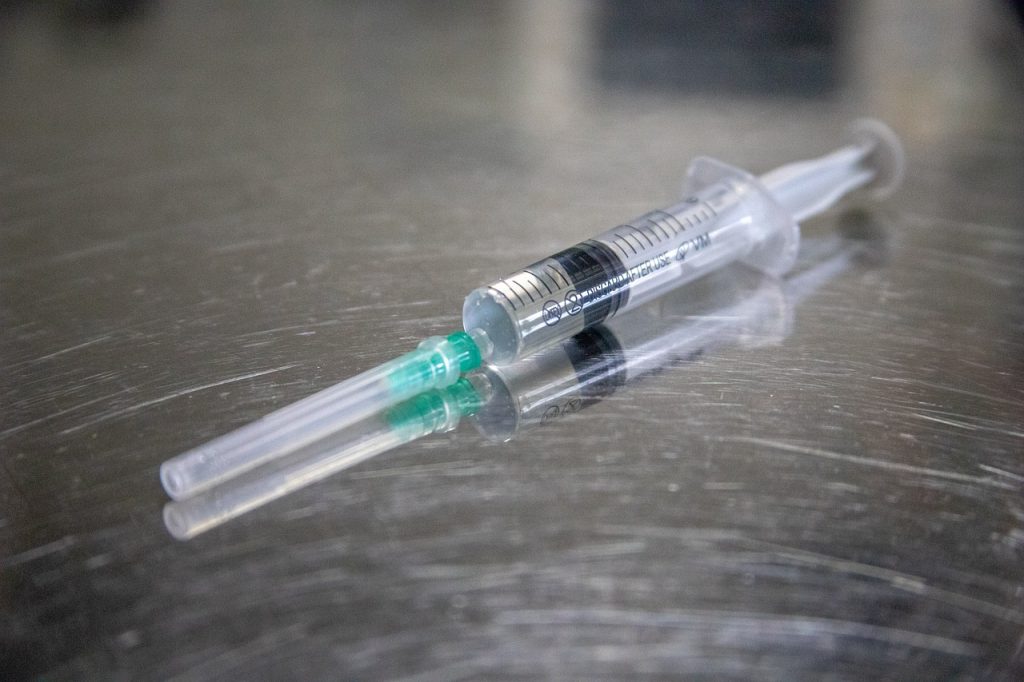All fields are required
Posted in Our Blog on December 3, 2024

Scientists from Osaka Metropolitan University discovered a Campylobacter jejuni antibody that could contribute to significant new technologies in detection and infection prevention.
Could we see a Campylobacter vaccine in the future.
Maybe.
But first, what is Campylobacter and how serious is it?
The Center for Disease Control and Prevention (CDC) estimates that 1.5 million people in the United States each year become sick from Campylobacter infection.
Due to the nature of the illness, many people do not seek medical treatment and are therefore never tested for the pathogen. Despite the expected number of undiagnosed or unreported cases of Campylobacter infection, active surveillance indicates that around 20 cases per 100,000 people are diagnosed with the illness each year.
While there are more than 20 species of Campylobacter bacteria, nearly 90% of those causing human illness belong to the Campylobacter jejuni species. The other 10% of Campylobacter species affecting humans include Campylobacter coli, Campylobacter upsaliensis, Campylobacter fetus, and Campylobacter lari.
Campylobacter are most associated with poultry, as their ideal temperature and the approximate body temperature of birds are a good fit. Most birds can carry the bacteria without becoming sick.
With the bacteria’s affinity for birds, it isn’t a surprise that raw or undercooked poultry along with food that has been contaminated by raw or undercooked poultry are the primary vectors of the illness.
While people can also get sick from contact with the feces of a dog or cat infected with the germ, person-to-person spread is fairly uncommon.
Campylobacter illnesses aren’t always associated with outbreaks, as illnesses tend to be due to transient exposure. But outbreaks of Campylobacter have been reported.
In fact, Campylobacter outbreaks have been associated with:
Anyone exposed to Campylobacter germs can become infected. However, certain groups of people are at higher risk of becoming sick if exposed and experiencing more serious illness or complication if infected.
The CDC indicates that along with children younger than five years of age, adults over 65 years of age, and those who work with animals (especially birds or poultry), infection is more common in males.
Those more susceptible to severe illness if infected include:
Symptoms of Campylobacter infection are along the lines of what you would expect from an intestinal bug.
Common symptoms include:
These symptoms often begin two to five days after exposure and generally resolve within about a week. Unless complications arise.
More severe illness develops if the Campylobacter bacteria breach the intestinal wall and enter the bloodstream. A bloodstream infection, sepsis, and symptoms mimicking acute appendicitis or ulcerative colitis may occur.
Long-term, Campylobacter infections can cause reactive arthritis, irritable bowel syndrome (IBS) and Guillain-Barré syndrome that can have lasting consequences.
Guillain-Barré syndrome is a serious illness causing temporary paralysis. While only 0.2 to 1.7 in every 1,000 people with Campylobacter illness will develop this complication, around five to 41% of all Guillain-Barré illnesses are caused by Campylobacter infections.
The seriousness of these complications is the primary drive for finding a better way to detect and prevent Campylobacter illnesses.
The research team at Osaka Metropolitan University discovered an antibody that can bind to the harmful bacteria. An antibody that affects the proteins used in the cell’s energy production.
In addition to being a factor that can help identify bacteria, this Campylobacter jejuni antibody can also inhibit the bacteria’s growth. Effectively treating the infection.
All this talk about antibodies. But what exactly are they?
An antibody is a protein produced by your body’s immune system. Antibodies are formed in response to threats like bacteria or viruses (pathogens) that cause harm. They perfectly match up to the corresponding pathogen.
Consider an antibody like a puzzle piece. The antibody essentially plugs itself into the antigen (the complementary part of the pathogen) and effectively neutralizes it. The antibody only works on that specific pathogen’s antigen. The puzzle piece will not fit into any other slot.

Image by PIRO from Pixabay
Your body’s immune system creates these antibodies in response to threats or receives them in the form of vaccines.
This newly discovered Campylobacter jejuni antibody is a game changer.
It reacts to a multiprotein complex known as QcrC, a complex found across multiple strains.
The effects of the Campylobacter jejuni antibody lend to both vaccine applications as well as reliable ways to detect the bacteria in samples.
“Our findings can lead to the development of preventative approaches so that Campylobacter infections do not become more severe, while also formulating a simple way to detect Campylobacter jejuni,” said Associate Professor Hatankaka of Osaka Metropolitan University.
“The development of a simple detection system,” researcher Professor Shinji Yamasaki of Osaka Metropolitan University explained, “will be useful for the rapid identification of contaminated food, which will be beneficial for the control of Campylobacter jejuni infections and food poisoning, along with vaccine development.”
Perhaps we will see a Campylobacter food poisoning vaccine in our future!
The Campylobacter jejuni antibody discovery opens the door to other research projects not only for vaccines for this commonly acquired foodborne pathogen, but others like it.
If a single vaccine series could prevent Listeria, Shiga toxin-producing E. coli, Salmonella, or Shigella illnesses, would you be on board?
I probably still wouldn’t tempt fate with chicken ceviche or beef sashimi. But it could reduce the stress of potlucks!
If you’d like to know more about food safety topics in the news, like “Breakthrough Discovery of Campylobacter jejuni Antibody May Lead to Vaccine and Simple Detection System,” check out the Make Food Safe Blog. We regularly update trending topics, foodborne infections in the news, recalls, and more! Stay tuned for quality information to help keep your family safe, while The Lange Law Firm, PLLC strives to Make Food Safe!
By: Heather Van Tassell (contributing writer, non-lawyer)